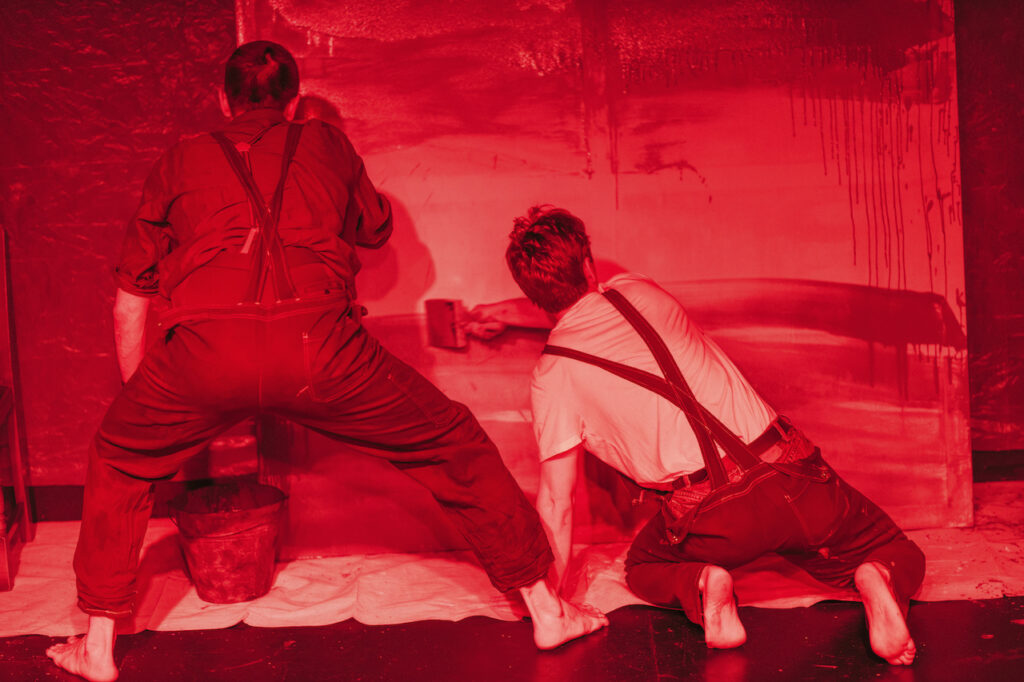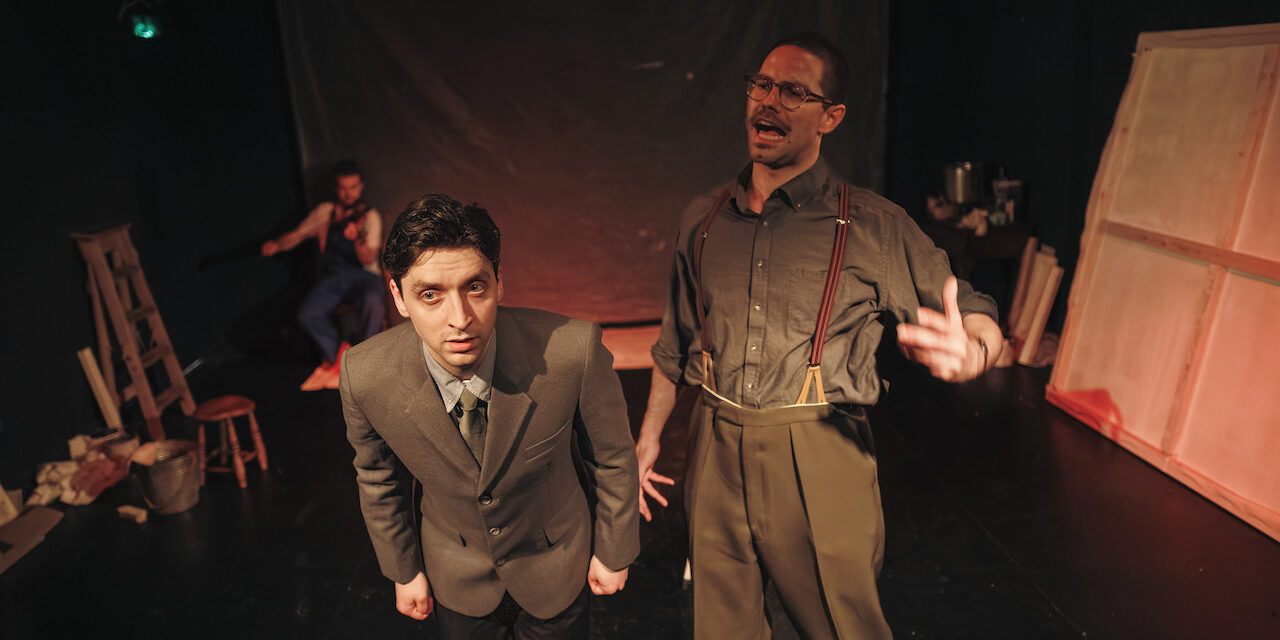
24 – 27 June
Mark Rothko has always been the kind of painter to divide opinion, not merely regarding the quality and value of his work, but in sparking debate about what actually is art. In this he shares some of the plaudits or brickbats, depending on one’s position with, notably, Duchamp and others. John Logan’s play is a contribution to the debate, which seems to come down on the side of those who argue that ‘art’ is what an artist does; it is what an artist produces. Thus urinals, columns of air, arrangements of stone in a landscape and all such other supposed affronts to the artistic establishment and sensibility are, by definition, works of art if produced by ‘an artist’. All of which begs the question, ‘What is an artist?’, and who decides who qualifies for such a coveted description? The Mark Rothko Mr Logan paints is a man obsessed by making his viewer look at his work in such a way as to have some kind of visceral, life affirming experience. The problem with that of course, is that much depends upon the mind of the viewer. Not many people could get so fired up as him by coloured marks on a canvas.
Nevertheless the play is a compelling portrait of a driven man who has no doubts about his own status even if he has flickering doubts about the value of what he does, particularly in relation to his famous commission to provide murals for the Seagram building in New York. Those works expressing the basic human emotions, as he sees it, of tragedy, ecstasy and doom are predominantly in deep shades of red. Whether the monied diners who are privileged enough to eat in the restaurant that displays the work are in any way affected by his paintings is a question that troubles him enough to buy back the paintings in what is the muted climax to the play.
Enabling Rothko (Paul Williams) to express his thoughts Mr Logan has provided him with a new assistant, Ken (Israel Bloodgood). It shouldn’t surprise us that the play only starts to work as a drama when Ken, having worked with Rothko for some time begins to find his voice and offer some kind of challenge to his employer. He voices what many in the audience have no doubt been wondering themselves after Rothko has been given free rein to voice his own self-indulgent opinions which are based on his own psychological relationship to the process of making. In respect of the latter Rothko finds a powerful advocate in Mr Williams who brings a taut intellectual and emotional intensity to the role.
★★★★☆ Graham Wyles, 26 June 2024
Photo credit: Ed Felton


